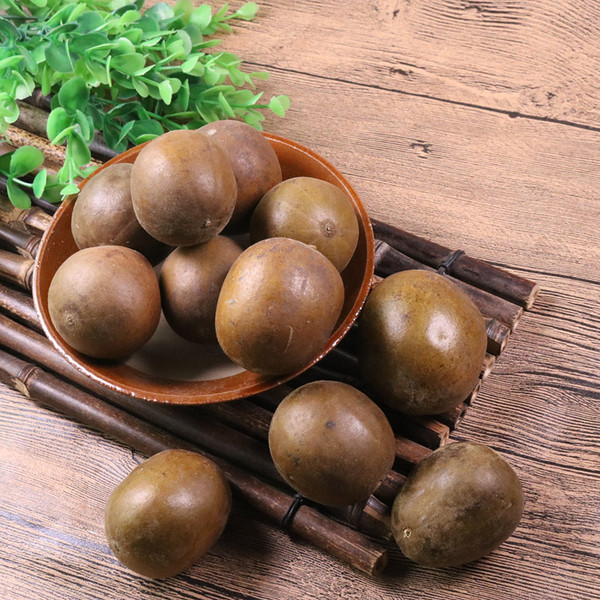Product Overview
Parts used: Dried fruit
TCM category: Tonic herbs for Yin Deficiency
TCM nature: Cool
TCM taste(s): Sweet
Meridian affinity: Large intestine Lung
Scientific name: Siraitia grosvenorii, Momordica grosvenori
Other names: Momordica fruit, Lo han kuo, Winter melon, Grosvenor Momordica Fruit
Use of monk fruits (Luo Han Guo) in TCM
Please note that you should never self-prescribe TCM ingredients. A TCM ingredient is almost never eaten on its own but as part of a formula containing several ingredients that act together. Please consult a professional TCM practitionner, they will be best able to guide you.
Preparation: The fruit is harvested from when it is green to dark green and after being left to dry for several days, it is dried at low temperature.
Dosage: 9 - 15 grams
Main actions according to TCM*: Lubricates and cools the Lungs. Treats Lung Yin Deficiency. Dissipates nodules and swollen glands. Lubricates the Intestines and relieves constipation.
Primary conditions or symptoms for which monk fruits may be prescribed by TCM doctors*: Pneumonitis Dry cough Swollen lymph nodes Constipation Sore throat
Key TCM concepts behind monk fruits (Luo Han Guo)'s properties
In Traditional Chinese Medicine (TCM), monk fruits are plants that belong to the 'Tonic herbs for Yin Deficiency' category. Tonic herbs are used for patterns of Deficiency, when one lacks one of the 'Four Treasures' (Qi, Blood, Yin and Yang). Yin tonics have a heavy, moist nature. They either nourish the Kidneys and Liver or moisten the Lungs and Stomach. Extreme Yin Deficiency often translates into a 'burn-out', unfortunately more and more common among people today. It is worth mentioning that another great remedy against Yin Deficiency is a lot of rest and sleep; no herb will ever be able to replace this!
Furthermore monk fruits are plants that are Cool in nature. This means that monk fruits tend to help people who have too much "heat" in their body, although with less effect than a plant that would be Cold in nature. Balance between Yin and Yang is a key health concept in TCM. Those who have too much heat in their body are said to either have a Yang excess (because Yang is Hot in nature) or a Yin deficiency (Yin is Cold in Nature). Depending on your condition monk fruits can help restore a harmonious balance between Yin and Yang.
Monk fruits also taste Sweet. The so-called "five elements" theory in Chinese Medicine states that the taste of TCM ingredients is a key determinant of their action in the body. Sweet ingredients like monk fruits tend to slow down acute reactions and detoxify the body. They also have a tonic effect because they replenish Qi and Blood.
The tastes of ingredients in TCM also determine what organs and meridians they target. As such monk fruits are thought to target the Large intestine and the Lung. In TCM the Large Intestine receives the "impure" parts of the digested food from the Small Intestine, absorbs the remaining fluids and excrete the remainder as feces. In addition to performing respiration, the Lungs are thought to be a key part of the production chain for Qi and the body fluids that nourish the body.
Use of monk fruits (Luo Han Guo) as food
Monk fruits are also eaten as food. It is used as an ingredient in dishes such as Luo Han Guo sweet soup.







